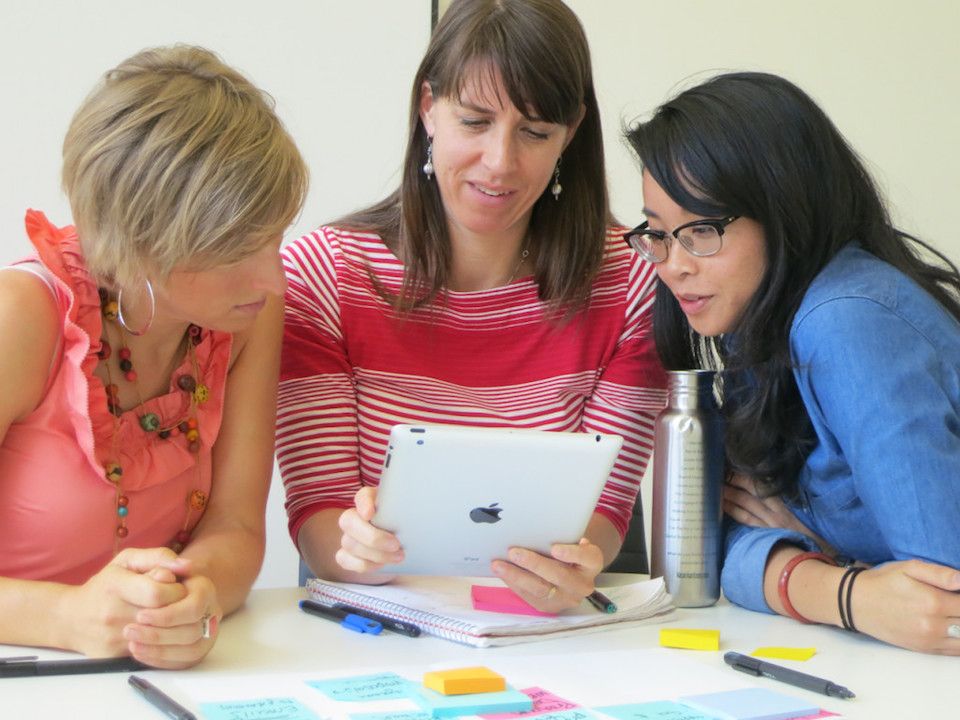To be more innovative, shift from management to engagement
To create new value we need to fundamentally change the way we work.

March 11, 2016
Over the last decade, companies invested significantly in innovation capabilities and internal innovation teams. The pursuits and objectives of the teams are wide ranging: grow the core business by 25%, enter adjacent markets, grow adoption by a new demographic, define the future of their product or service.
Many, if not the majority, do not meet their growth expectations. New services and products are not launched. New markets are not created, and investments are not returned.
When executive patience runs out, teams are reorganized. Yet another attempt is made to find the right leader and organizational structure.
With teams of talented people and significant resources, why do organizations still struggle to create new value?
Innovation requires a different way of working
Stop and think about the nature of corporate work. If that seems like an odd statement, contrast it with a different kind of profession. What is the nature of working in professional sports? What is like to go to work in a university? What is the dynamic of running a restaurant?
Every kind of work has its own characteristics and dynamics.
And the character and dynamic of corporate work? You probably think of going to meetings, making powerpoint decks, coordinating schedules, and doing email. While this takes time and effort, much of it is only talking about the work, not engaging in the work itself.
It is one thing to declare that a customer interface needs to be engaging and easy to use, but it is an entirely different matter to make it so. It is easy to state that innovation must deliver 25% year-over-year growth, but it is an entirely different matter to make it happen. And this is what companies seem to miss as they set up new innovation teams or pursue exciting new projects aimed at innovation. You can’t just implement a process, talk about it, and cross items off the to-do list to succeed.
Creating innovative work requires a fundamentally different approach to working. And it’s not how we were taught in school or rewarded in the workplace.

Shift from managing to engaging
Innovative work requires a shift in mindset and day-to-day practices.
I learned the difference first hand. While working at a large Fortune 50 company, my main focus was to keep work moving. The project timing and milestones were a bigger topic of conversation than the content of the project itself.
I had to completely change my definition of “work” when I arrived at Gravitytank, an innovation consulting firm. My time and attention is now spent in the work, rather than managing it.
Innovation requires actually spending focused time in the content. You must get into the subject matter and development of ideas throughout a project in new ways.
The information and ideas are the real priority in innovation work, not the process surrounding them. Discussion is expected. You facilitate dialogue by sharing imperfect ideas and tangible prototypes. The ideas aren’t right or finished, but you have to share anyway in order to make them better. This is the opposite of how we traditionally work. How often have you heard a friend or colleague say “I’m not ready to show it yet, I really need to finish it”?
When you’re engaged in the work, the goal is to learn new insights at each step of the project, not to just check activities off a list.
Shift from managing to engaging
Here are a few ways to prioritize engaging in the content over managing its completion:
- Immerse in the problem space to surface new information. Don’t base decisions on generalizations.
- Find holes in your work and regularly test your assumptions, instead of just defending your ideas.
- Frame your problem in multiple ways. Don’t act on a problem as given.
- Generate at least 10 different ways a problem could be solved. Don’t jump on the first solution that comes to mind.
- Ask questions about the development of the work instead of the work’s milestones.
- Share your work early and often. Seek outside perspective and be open to the unexpected. Avoid working in isolation.
Change how you work.
Focusing on engaging in the content can be a big shift–especially if you’ve excelled in traditional corporate work. And just managing the work might still serve you. But perhaps you’ll agree that lately we are all being asked to “be more innovative.”
You can think of that as an alternative way of saying “figure out how to create new value.” And to do so is to adopt a different mindset and a new way of working.
A new way of working will change your day-to-day focus. It will change how you interact with colleagues. The first step is to be aware of what you are doing today.
Reflect on how you spend your time. Is it more management or content focused?Each day, look for an opportunity to emphasize content over execution. Here are a few small ways to start shifting your perspective:
- Ask for your team’s input way before you feel comfortable doing so.
- When an issue is surfaced, don’t try to fix it immediately. Take 5-10 minutes to think through the root cause of the issue.
- Instead of moving forward with the first viable solution, generate 10 more alternative solutions.
As simple as these are to say, actually putting them into practice is harder.
You may struggle with sharing work with teammates in a less-polished format. You will become frustrated that there are still things to get right on that new service as the deadline approaches.
Resist the urge to fall back into efficiency-driven management behaviors and communication. Instead, roll up your sleeves and engage in the work to shape it into a success.




